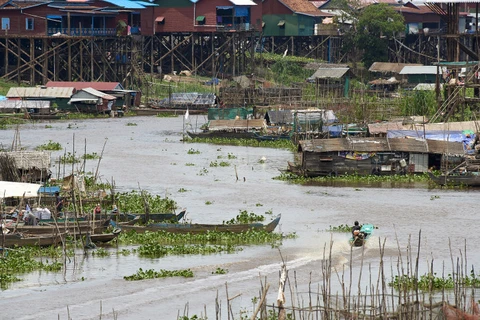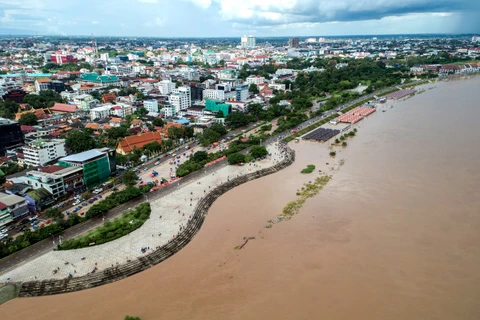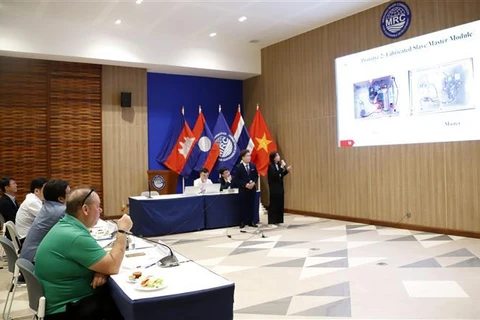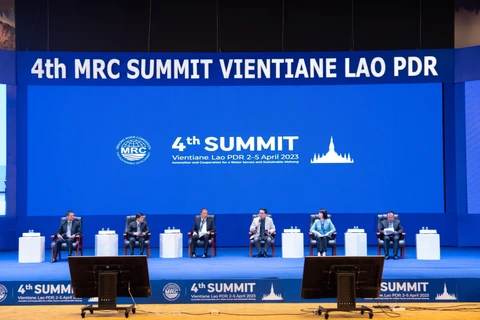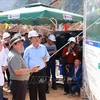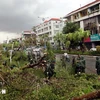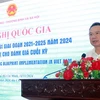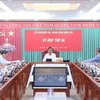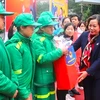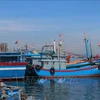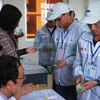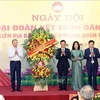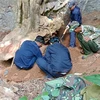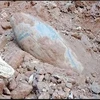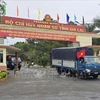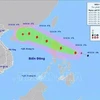Vientiane (VNA) - Students' teams from the Water Resources University and Can Tho University of Vietnam won two second prizes for technologies to monitor water level and measure soil moisture in a contest initiated by the Mekong River Commission (MRC), which took place in Vientiane, Laos, on March 30 and 31.
At the award ceremony on April 3, the organiser presented four first prizes and four second prizes to the winners.
The competition saw the participation of 14 teams from 11 universities in MRC member states of Cambodia, Laos, Thailand, and Vietnam.
It aimed to seek sustainable and advanced technologies for monitoring water levels, rainfall, soil moisture and water quality in the Mekong River. The contest also contributed to improving the professional capacity of young people, while promoting the belief that the people of the Mekong river basin can solve relevant problems through innovation and creativity in technology.
Products of all the 11 participating universities are being displayed at the Lao national convention centre, where the 4th MRC Summit is taking place from April 2-5.
The MRC, an intergovernmental organisation established in 1995 following the Mekong Agreement among Cambodia, Laos, Thailand, and Vietnam, serves as a regional platform for Mekong-related cooperation and knowledge sharing.
The MRC is currently running about 250 monitoring stations for factors affecting Southeast Asia's largest river such as hydrology, rainfall, water quality, ecological health, fisheries, and drought. However, most of their monitoring technologies rely on imported equipment, which is often expensive and sometimes outdated./.
At the award ceremony on April 3, the organiser presented four first prizes and four second prizes to the winners.
The competition saw the participation of 14 teams from 11 universities in MRC member states of Cambodia, Laos, Thailand, and Vietnam.
It aimed to seek sustainable and advanced technologies for monitoring water levels, rainfall, soil moisture and water quality in the Mekong River. The contest also contributed to improving the professional capacity of young people, while promoting the belief that the people of the Mekong river basin can solve relevant problems through innovation and creativity in technology.
Products of all the 11 participating universities are being displayed at the Lao national convention centre, where the 4th MRC Summit is taking place from April 2-5.
The MRC, an intergovernmental organisation established in 1995 following the Mekong Agreement among Cambodia, Laos, Thailand, and Vietnam, serves as a regional platform for Mekong-related cooperation and knowledge sharing.
The MRC is currently running about 250 monitoring stations for factors affecting Southeast Asia's largest river such as hydrology, rainfall, water quality, ecological health, fisheries, and drought. However, most of their monitoring technologies rely on imported equipment, which is often expensive and sometimes outdated./.
VNA

